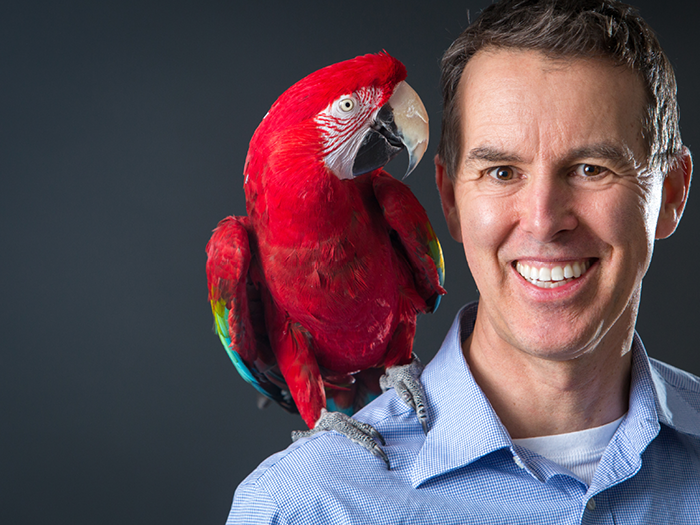Alta Vista Specialty & Emergency Veterinary Centre
-
Mon-Sun:
Open 24 hours
Alta Vista Specialty & Emergency Veterinary Centre
613-731-9911

Dr Tinsley grew up in Ottawa, and knew that he wanted to pursue a career in medicine. He opted to become a veterinarian, and has enjoyed every minute of it. He became a board certified Veterinary Ophthalmologist in 1994, and has worked here at Alta Vista since then. His favorite part of the job is seeing how happy the dogs and cats (and their owners) are when he is able to restore vision. Outside of veterinary medicine, Dr. Tinsley enjoys spending time with his kids as well as photography, camping and canoeing. He also enjoys many sports, most notably competing in Ironmans.
Professional Degrees
Publications
Organizations
Presentations
Veterinary Ophthalmology services treat complicated or difficult problem such as cataracts, corneal ulcers, Entropion, Glaucoma, prolapsed gland of the nictitans (cherry eye) and Uveitis.
While your general practitioner veterinarian can diagnose and treat many routine eye conditions, certain diseases and injuries require the care of a doctor who has had specialized, intensive training in veterinary ophthalmology in order to provide the very best outcome for your pet.
A veterinary ophthalmologist is a doctor who specializes in diseases that can affect your pet's eye and vision. A veterinary ophthalmologist is also equipped to diagnose and treat diseases that affect the structures surrounding the eye, such as the eyelids, conjunctiva, and some of the bones of the skull that comprise the eye socket. A veterinary ophthalmologist will combine medical and surgical treatments in order to most effectively treat your pet's eye problem.While your general practitioner veterinarian can diagnose and treat many routine eye conditions, certain diseases and injuries require the care of a doctor who has had specialized, intensive training in veterinary ophthalmology in order to provide the very best outcome for your pet.Pet eye diseases that you may be familiar with as a result of your own visits to a human ophthalmologist include cataracts, glaucoma, retinal detachments, and corneal ulcers.
While your general practitioner veterinarian can handle many aspects of your pet's care, just as in human medicine, sometimes there is a need for the attention of a specialist. If your pet has a complicated or difficult problem, your pet may need the care of a veterinary ophthalmologist. You can be assured that a veterinarian who knows when to refer you and your pet for more specialized diagnostic work or treatment is one that is caring and committed to ensuring your pet receives the highest standard of medical care for his or her problem.While in some cases, your veterinarian may be able to simply consult with a specialist about your pet's care, in other cases it is necessary to actually refer you and your pet to the specialist for more advanced diagnostics and treatment, including surgery.
Your veterinary ophthalmologist will work together with your veterinarian as part of your pet's total veterinary health care team. Your general practitioner veterinarian will still oversee all aspects of your pet's care, but with the added, specialized input of a veterinary ophthalmologist. For example, if a veterinary ophthalmologist ultimately diagnoses diabetes in your pet as a result of an eye examination for cataracts, that information will be relayed back to your general practitioner veterinarian, who will treat your pet's diabetes. The additional input of the veterinary ophthalmologist will be called upon as needed as your veterinarian manages your pet's illness.
Emergency Hours:
Mon-Sun: Open 24 hours
Referral Services by Appointment:
Monday - Friday 6:00 AM - 6:00 PM
